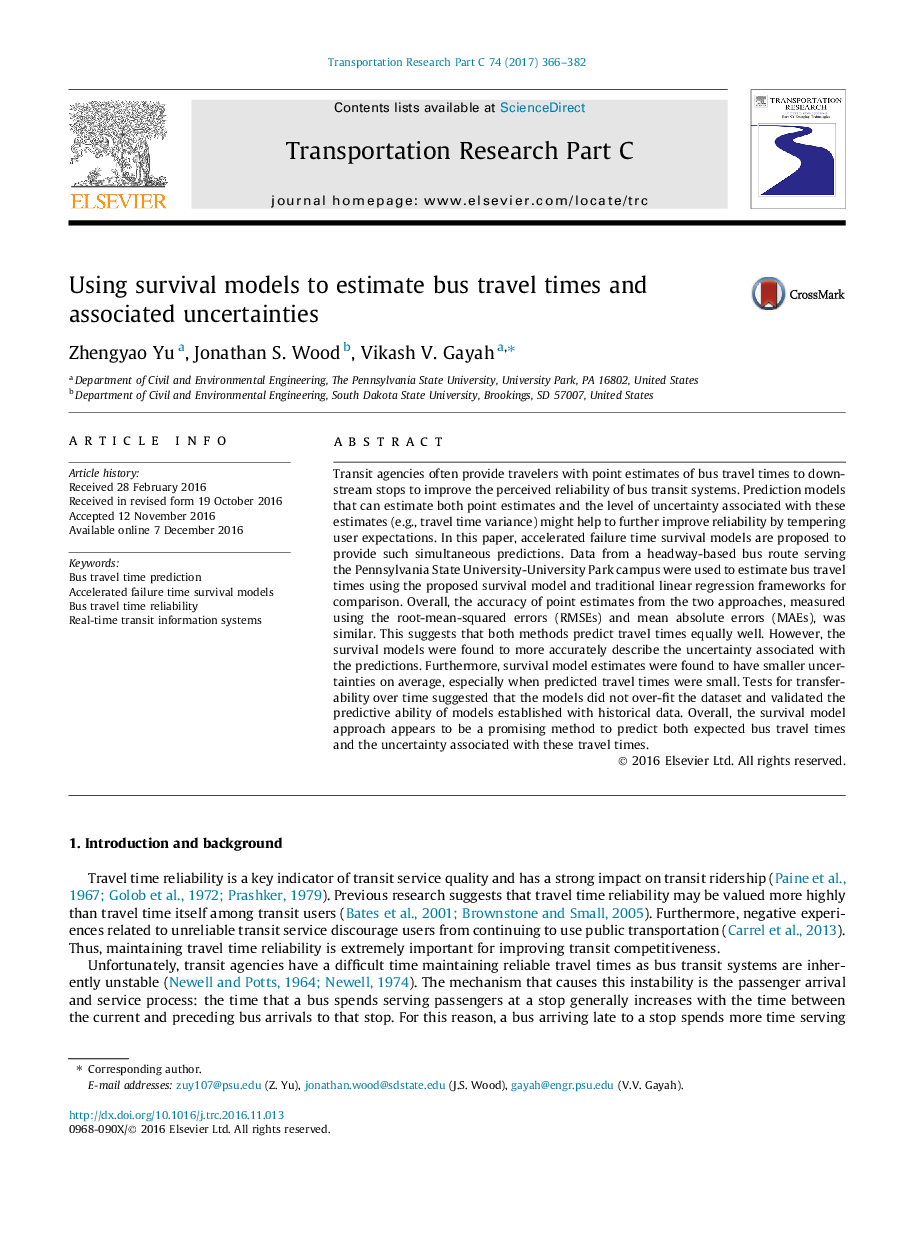| Article ID | Journal | Published Year | Pages | File Type |
|---|---|---|---|---|
| 4968596 | Transportation Research Part C: Emerging Technologies | 2017 | 17 Pages |
â¢Models describe bus travel times and travel time uncertainty simultaneously.â¢Linear and survival model frameworks estimated and compared.â¢Both models estimate expected bus travel times equally well.â¢Survival models better described uncertainty associated with bus travel time estimates.
Transit agencies often provide travelers with point estimates of bus travel times to downstream stops to improve the perceived reliability of bus transit systems. Prediction models that can estimate both point estimates and the level of uncertainty associated with these estimates (e.g., travel time variance) might help to further improve reliability by tempering user expectations. In this paper, accelerated failure time survival models are proposed to provide such simultaneous predictions. Data from a headway-based bus route serving the Pennsylvania State University-University Park campus were used to estimate bus travel times using the proposed survival model and traditional linear regression frameworks for comparison. Overall, the accuracy of point estimates from the two approaches, measured using the root-mean-squared errors (RMSEs) and mean absolute errors (MAEs), was similar. This suggests that both methods predict travel times equally well. However, the survival models were found to more accurately describe the uncertainty associated with the predictions. Furthermore, survival model estimates were found to have smaller uncertainties on average, especially when predicted travel times were small. Tests for transferability over time suggested that the models did not over-fit the dataset and validated the predictive ability of models established with historical data. Overall, the survival model approach appears to be a promising method to predict both expected bus travel times and the uncertainty associated with these travel times.
